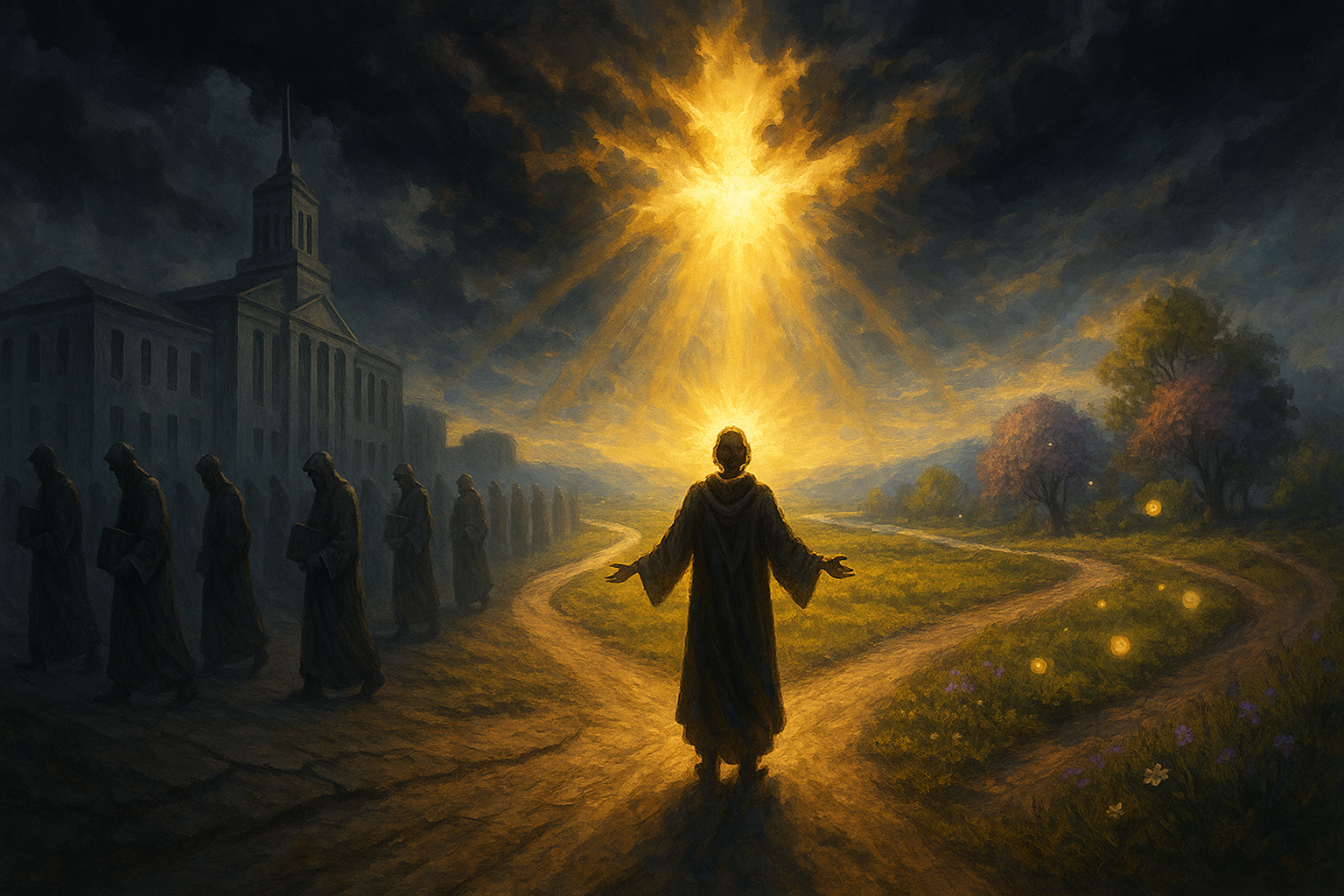What if you uncovered a secret so life-changing it forced you to rethink who you are? Picture it shifting the energy that drives you, like a storm clearing to reveal a new sky. What if you realized the path you thought was yours wasn’t meant for you at all? How would you respond? Would you hold tight to what’s familiar, or step boldly into the unknown?
The Bible holds truths that sometimes require effort to uncover—verses to study, translate, and reflect on deeply. But other truths sit right in front of us, missed not because they’re hidden, but because we’re not paying attention. In those cases, the “secret” isn’t a secret at all; it’s our own failure to see what’s clear.
Take two verses that reveal something profound about how people chase knowledge, especially in religious circles. Ecclesiastes 3:10-11 says: “I have seen the travail, which God hath given to the sons of men to be exercised in it. He hath made every thing beautiful in his time: also he hath set the world in their heart, so that no man can find out the work that God maketh from the beginning to the end.” The writer of Ecclesiastes dove into the ways of the world (religious world), lived like those (priests) around him, and wrote about it. He saw that many people (priests) are given a heavy task by God: a restless drive to understand life, but only within the limits of what’s earthly, never grasping the full scope of the living God’s work.
Who are these “sons of men”? The phrase isn’t about literal sons. Hebrews 5:1 explains: “For every high priest taken from among men is ordained for men in things pertaining to God.” This points to a spiritual lineage, not a family tree. In Titus 1:4, Paul calls Titus “mine own son after the common faith,” and in 1 Timothy 1:2, he refers to Timothy as “my own son in the faith.” Here, “son” means someone shaped by another’s teachings, like a mentor passing down beliefs. Proverbs 29:21 adds: “He that delicately bringeth up his servant from a child shall have him become his son at the length.” The “sons of men” are priests or ministers trained by human institutions; think seminaries or universities; carrying ideas rooted in human thought, not in the Bible’s actual fact.
The writer of Ecclesiastes lived among them, adopted their ways, and recorded his findings in the book. He discovered they carry a kind of curse, as Ecclesiastes 1:13 puts it: “I gave my heart to seek and search out by wisdom concerning all things that are done under heaven: this sore travail hath God given to the sons of men to be exercised therewith.” Their curse is a fixation on understanding only what fits within their religious or intellectual world, unable to see beyond it. Their minds stay trapped, chasing answers that never reach the bigger picture. This, according to the Bible, is their gift.
Why does the Bible call this out? It’s not just criticism; it’s a response. These “sons of men” turn away from the Bible’s true message, choosing instead to lean on and lead by human-made doctrines. They claim to speak from Scripture while twisting its meaning. This matters because their path isn’t ours to follow. After living their way, the writer of Ecclesiastes saw it was empty and concluded in Ecclesiastes 3:18: “I said in mine heart concerning the estate of the sons of men, that God might manifest them, and that they might see that they themselves are beasts.” Like animals driven by instinct, they stay stuck in their narrow ways, missing the wider truth.
We too can get caught up in their world, spending our time and energy on their ideas, repeating their patterns, letting their mindset shape our own. But real freedom comes from stepping away, rising above their limits. This isn’t about judgment; it’s about opportunity. By seeing what the Bible reveals, we can leave behind the “sons of men” and pursue an experience that’s more meaningful, one that connects us to the beauty within the scriptures,
So, what will you do with this truth now that you see it?


